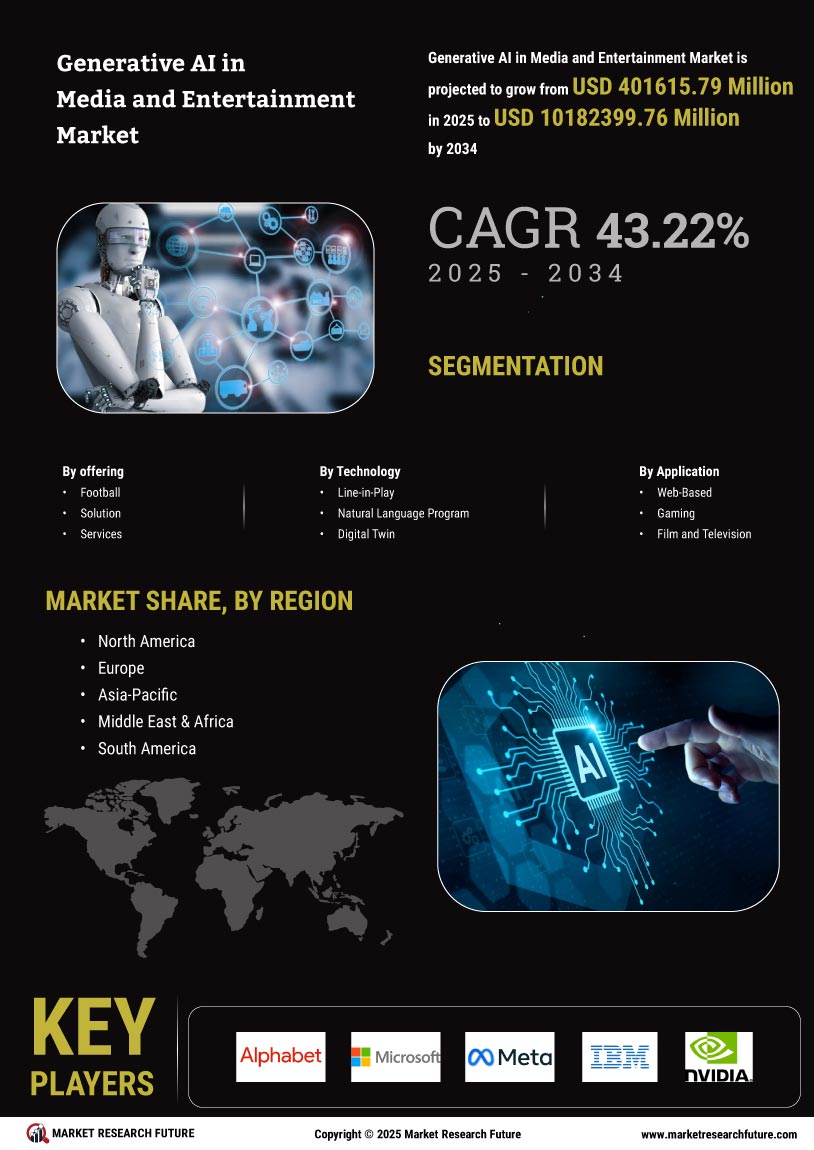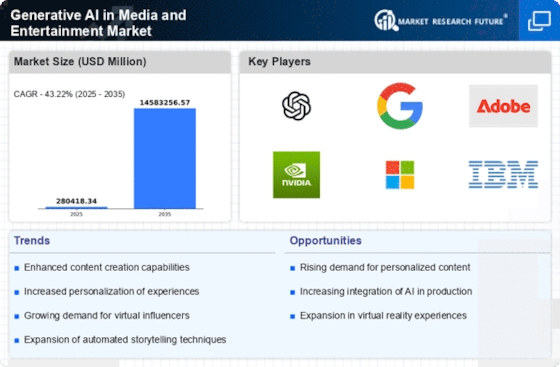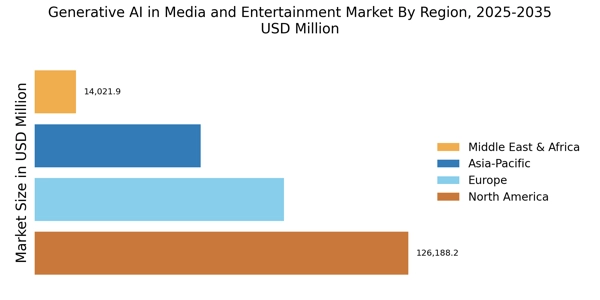Increased Demand for Content
The Generative AI in Media and Entertainment Market is experiencing a surge in demand for content across various platforms. As audiences become more discerning, the need for high-quality, engaging content has intensified. This demand is reflected in the projected growth of the content creation sector, which is expected to reach a valuation of over 400 billion dollars by 2025. Generative AI technologies facilitate the rapid production of diverse content types, including video, music, and written material, thereby meeting the evolving preferences of consumers. Furthermore, the ability of generative AI to analyze viewer data allows for the creation of tailored content that resonates with specific demographics, enhancing viewer engagement and retention. This trend indicates a robust market potential for generative AI solutions that streamline content creation processes.
Advancements in AI Technology
The Generative AI in Media and Entertainment Market is propelled by rapid advancements in artificial intelligence technologies. Innovations in machine learning, natural language processing, and computer vision are enhancing the capabilities of generative AI tools. These advancements enable creators to produce more sophisticated and realistic content, which is increasingly appealing to audiences. For instance, AI-generated characters and environments are becoming more lifelike, contributing to immersive storytelling experiences. The market for AI-driven tools is projected to grow at a compound annual growth rate of over 25%, indicating a strong interest in these technologies. As the capabilities of generative AI continue to evolve, they are likely to redefine the creative processes within the media and entertainment sectors, offering new avenues for artistic expression.
Cost Efficiency in Production
The Generative AI in Media and Entertainment Market is increasingly recognized for its potential to reduce production costs significantly. Traditional content creation processes often involve substantial financial investments in talent, equipment, and time. However, generative AI technologies can automate various aspects of production, from scriptwriting to visual effects, thereby minimizing labor costs and expediting timelines. Reports suggest that companies utilizing generative AI can achieve cost savings of up to 30% in their production budgets. This efficiency not only allows for the reallocation of resources to other creative endeavors but also enables smaller studios to compete with larger entities. As the industry continues to embrace these technologies, the financial implications for production companies could be transformative, fostering a more competitive landscape.
Emerging Distribution Channels
The Generative AI in Media and Entertainment Market is adapting to the emergence of new distribution channels that leverage AI technologies. Streaming platforms, social media, and virtual reality environments are increasingly incorporating generative AI to enhance content delivery and user interaction. These channels allow for real-time content generation, enabling creators to respond swiftly to audience trends and preferences. The rise of platforms that utilize AI-driven algorithms for content curation is reshaping how media is consumed. Reports suggest that streaming services utilizing generative AI can increase viewer retention rates by up to 40%. As these distribution channels evolve, they present opportunities for innovative content strategies that engage audiences in novel ways, further solidifying the role of generative AI in the media and entertainment landscape.
Personalization of User Experiences
The Generative AI in Media and Entertainment Market is witnessing a shift towards personalized user experiences. As consumers demand content that aligns with their individual preferences, generative AI technologies are being employed to analyze user data and create tailored media offerings. This personalization can manifest in various forms, such as customized playlists, targeted advertisements, and interactive storytelling. Studies indicate that personalized content can increase viewer engagement by up to 50%, underscoring the importance of this trend. By leveraging generative AI, companies can enhance user satisfaction and loyalty, ultimately driving revenue growth. The ability to deliver unique experiences not only differentiates brands in a crowded marketplace but also fosters deeper connections between creators and audiences.


















